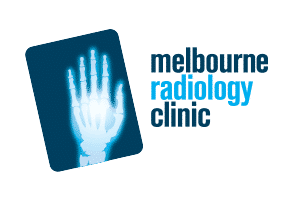Radiofrequency Ablation (RFA).
Fact Sheets | Interventional Radiology
Radiofrequency Ablation (RFA).
Introduction
Radiofrequency ablation (RFA) is commonly used to treat back pain and various soft tissue conditions, including facet joint pain, plantar fasciitis, Morton’s neuroma, and shoulder pain. RFA can also be used to treat recalcitrant knee and trochanteric region pain as well as post-operative neuromas.
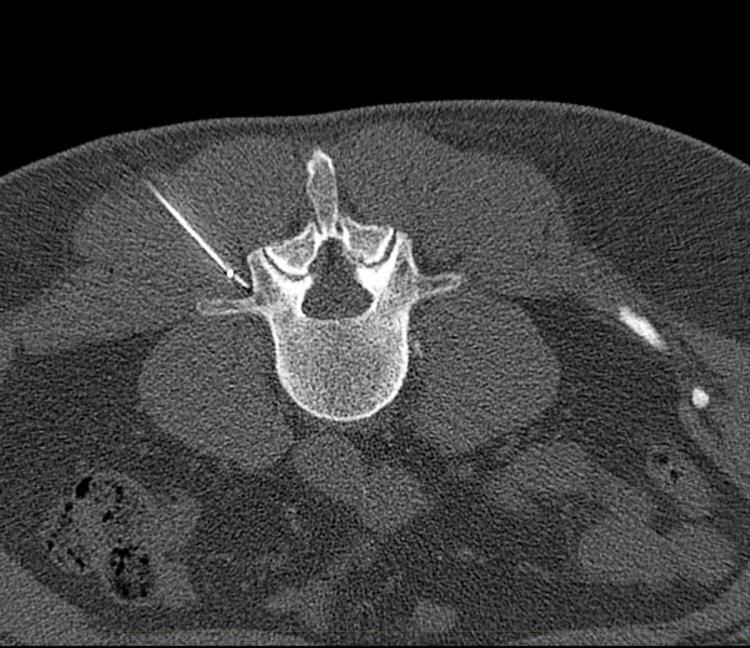
Conditions treated by RFA
- Facetogenic cervical, thoracic and lumbar pain
- Sacroiliac joint pain
- Morton's neuroma
- Plantar fasciitis/fasciosis
- Tendinopathy
- Greater Trochanteric Pain syndrome – including gluteus minimus and medius tendinosis/tendinopathy & trochanteric bursitis
- Hip joint pain
- End stage knee arthropathy
- End stage shoulder arthropathy
- Meralgia paraesthetica (lateral femoral cutaneous nerve entrapment)
- Neuralgia/neuritis (pulsed radiofrequency)
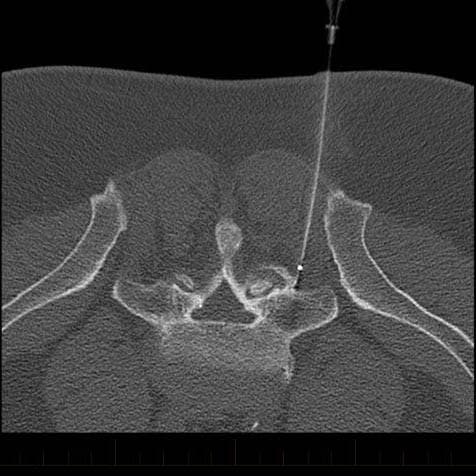
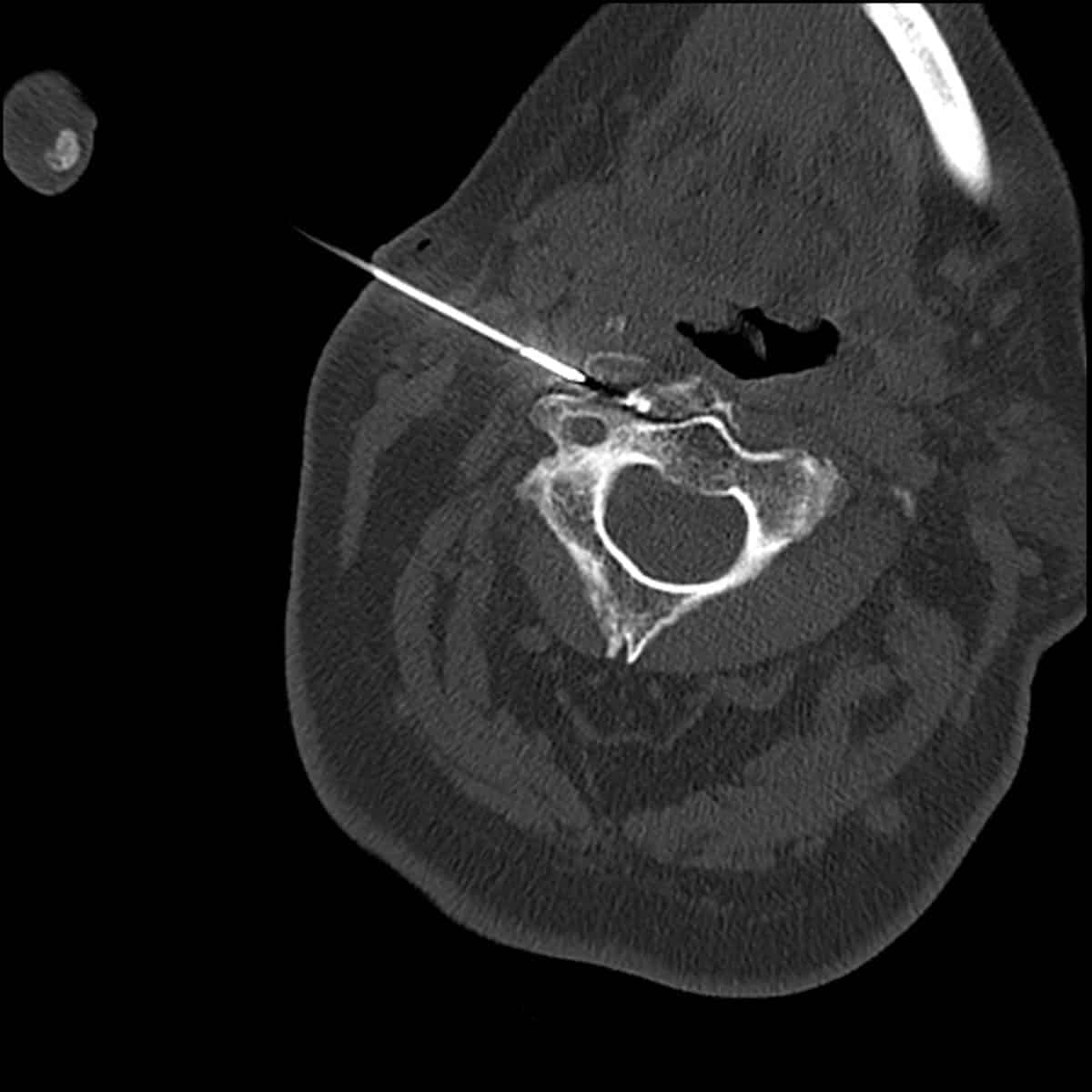
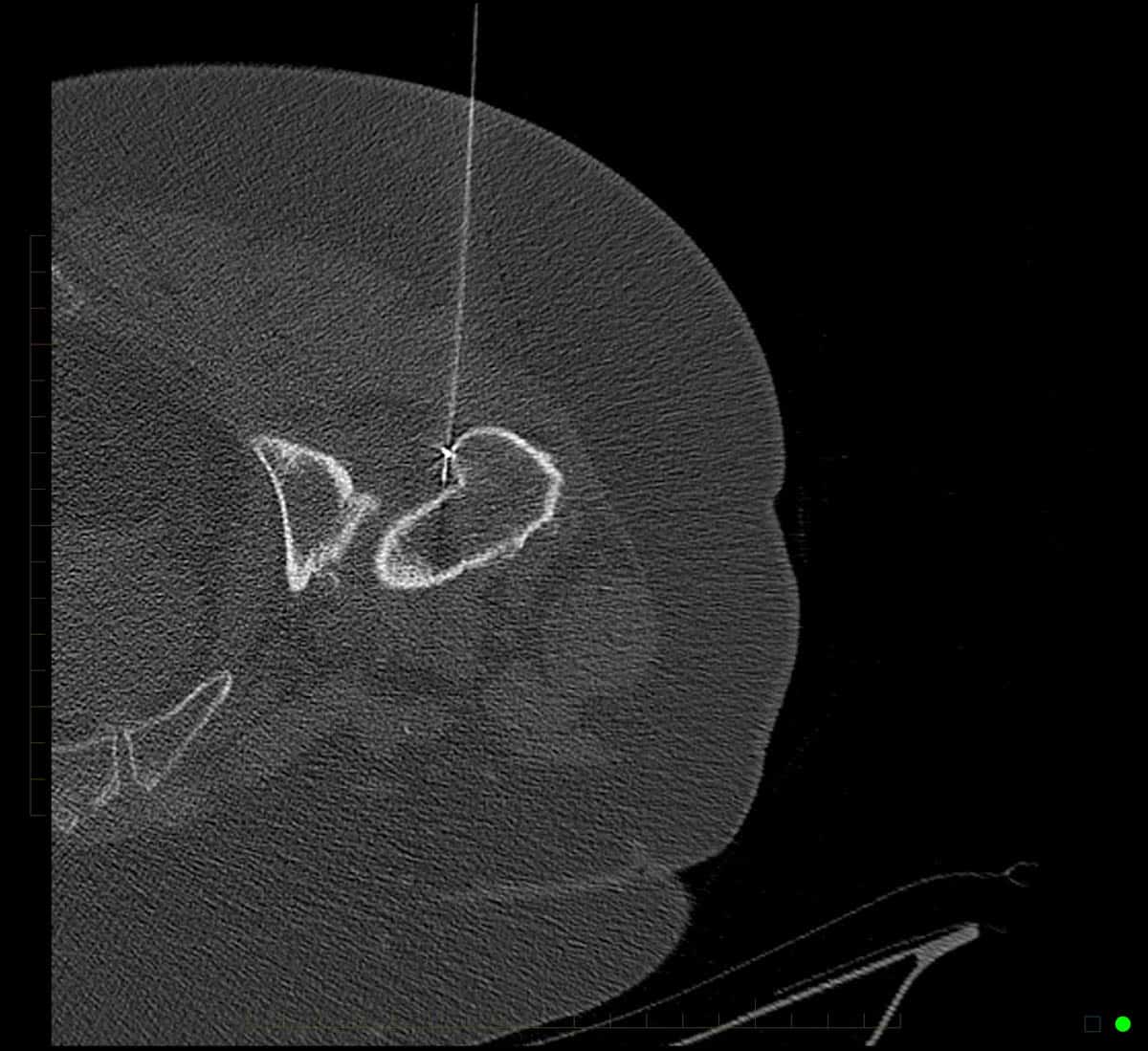
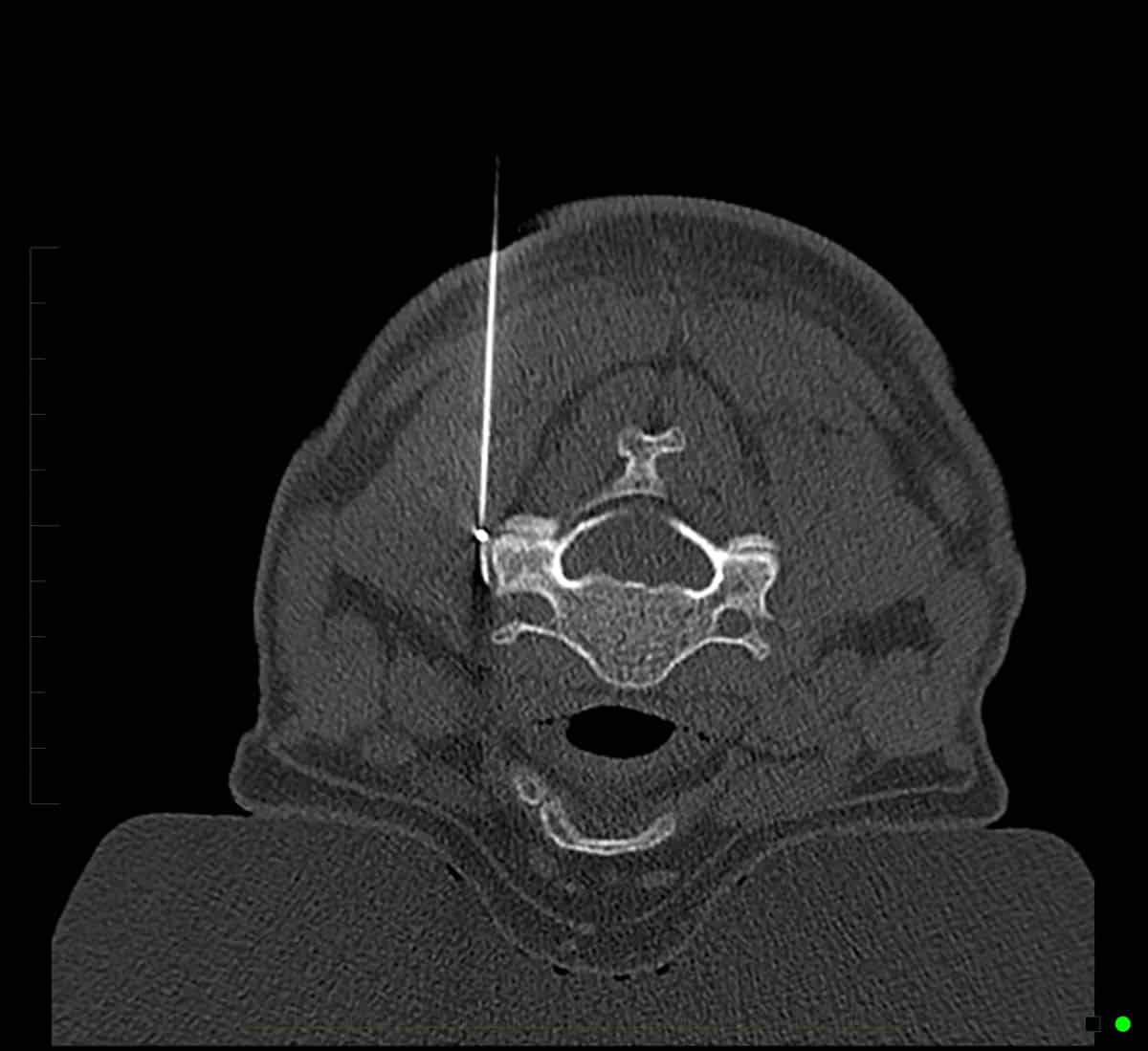
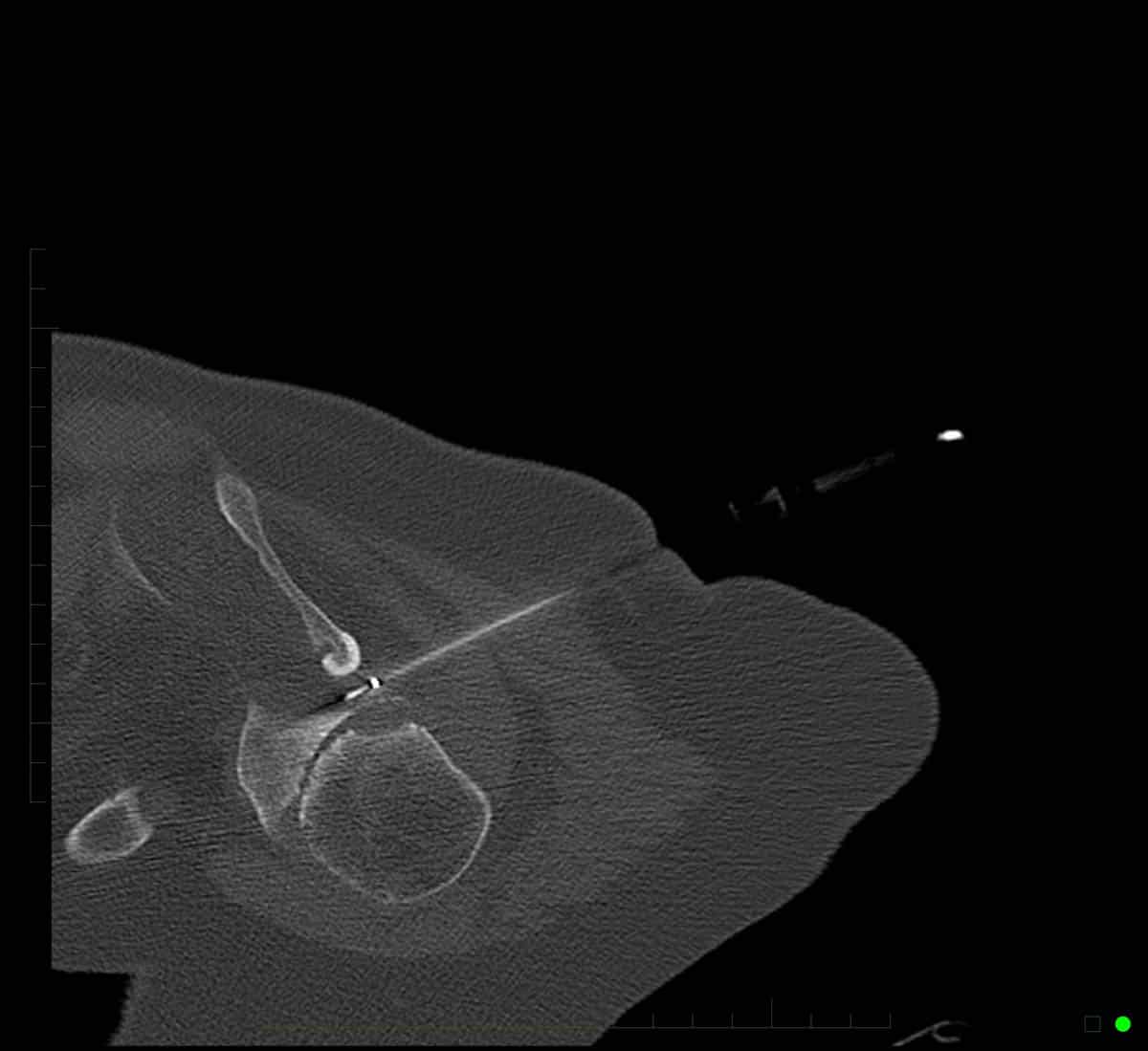
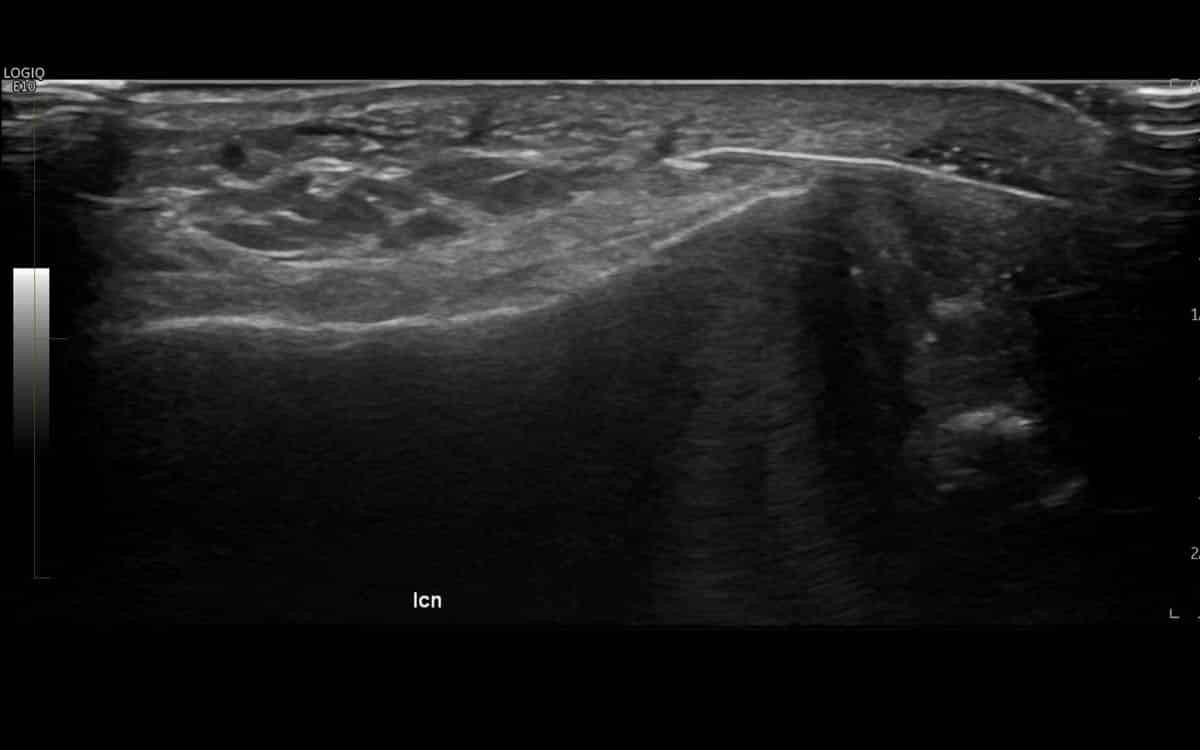
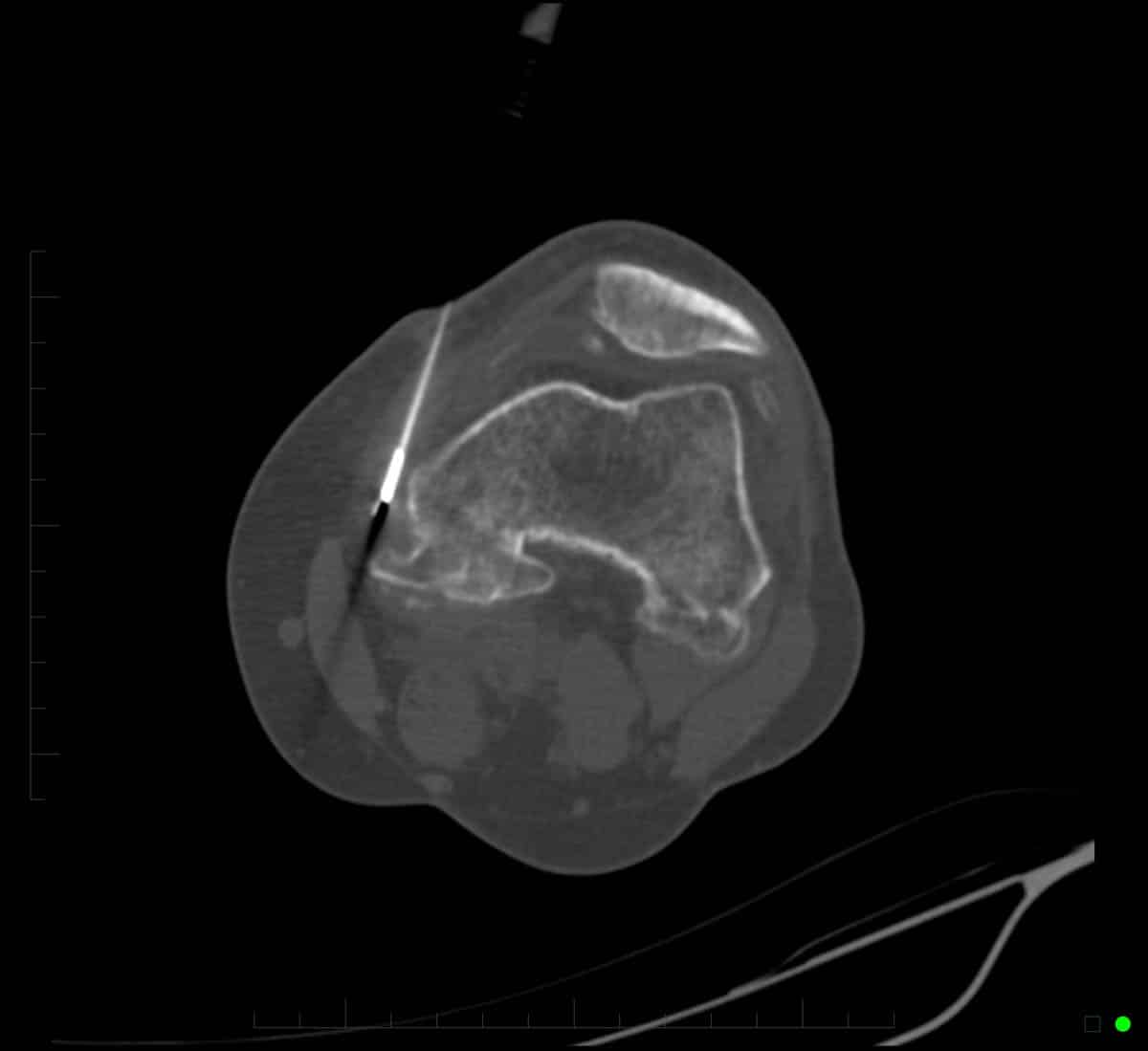
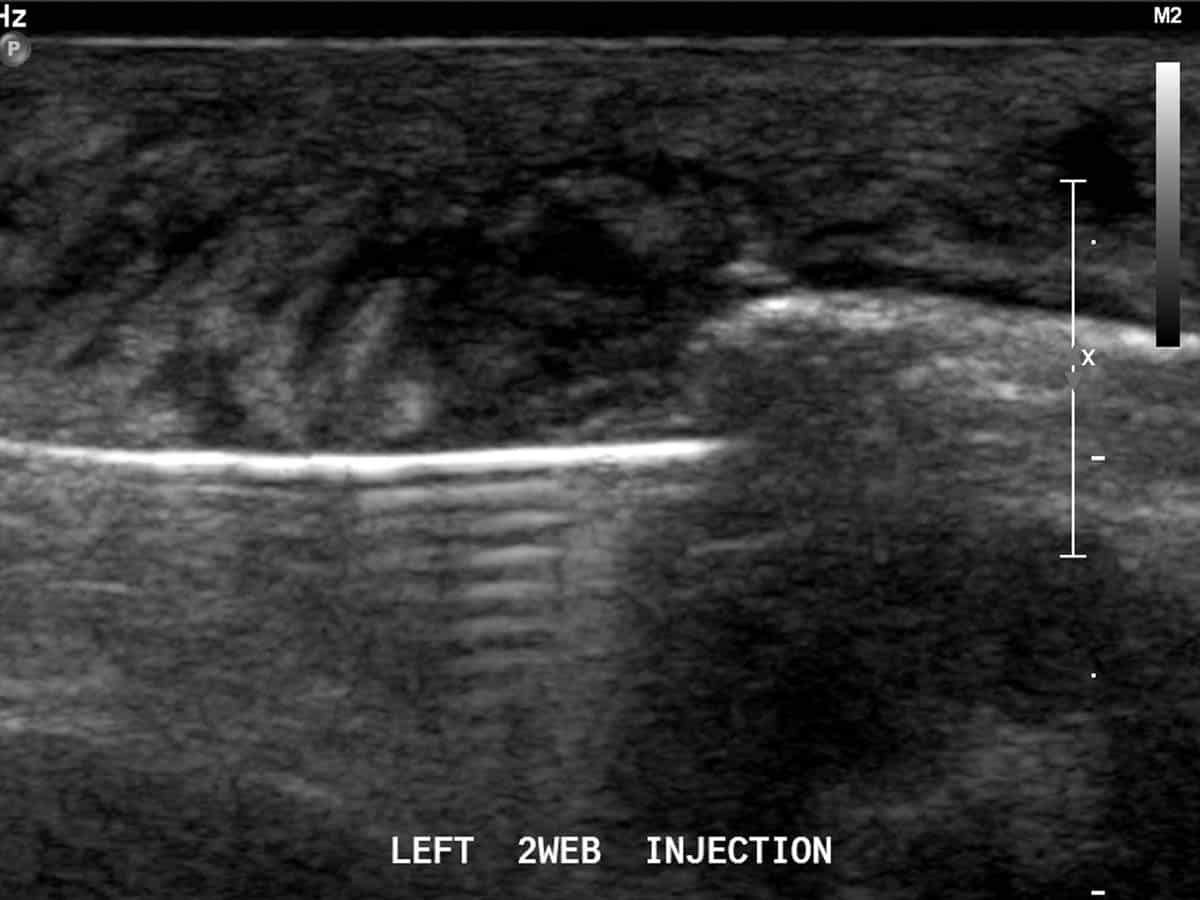
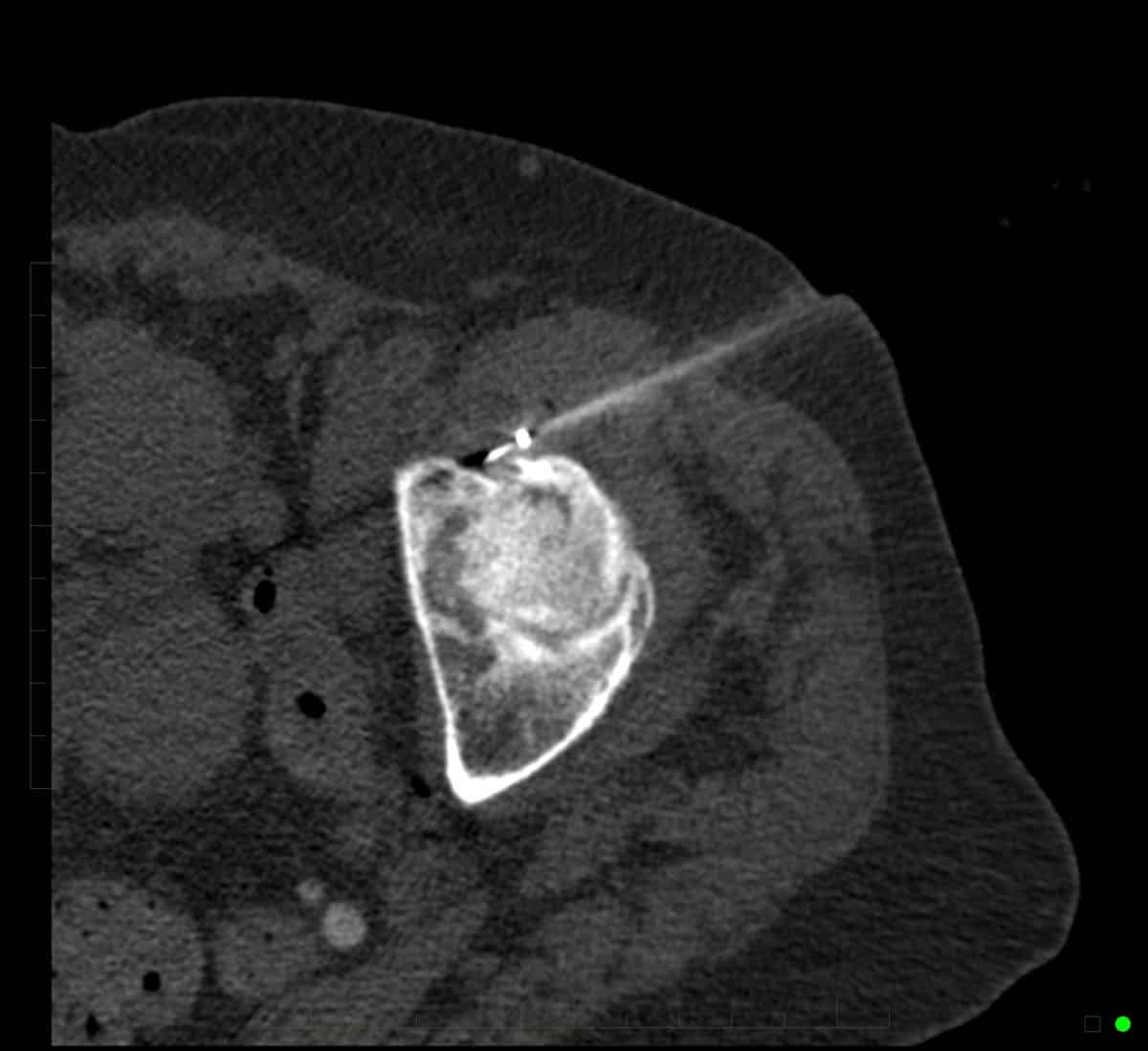
Preparation
We suggest those undergoing treatment via radiofrequency ablation attend with someone who can escort them and provide transport post procedure.
Please alert our staff if you have a pacemaker. The RFA can potentially cause the pacemaker to malfunction and therefore result in death.
If you have a pacemaker, then an alternative procedure may be planned or where possible, the pacemaker be switched off for the duration of the procedure.
RISKS
most of these are minor (1-2%), however can be serious (<0.1%) requiring hospital admission, intravenous antibiotics and surgery.
this is fortunately also rare and common in patients with bleeding disorders and on “blood thinning”medication.
from incorrectly positioned needle trauma, or as a consequence of the above mentioned complications.
Procedure
Radiofrequency ablation at Melbourne Radiology Clinic is performed by a radiologist experienced in interventional procedures. The patient is placed in an appropriate position for the procedure, a diathermy pad is placed on the thigh (shaving may be required to ensure proper skin contact) and the injection site cleansed. Pain relief is achieved by injecting a local anaesthetic around the nerve that is responsible for the patient’s pain. Once the nerve and area is anaesthetised (numbed), a fine needle is positioned in proximity to the nerve, with the position of which confirmed by imaging guidance (ultrasound or CT).
A thin probe is then passed through the needle, which is connected to a generator that results in radiofrequency energy passing through the probe, resulting in heating of the probe tip. The result of this heat is to destroy the targeted nerve and therefore disrupting the ability of the nerve to transmit pain signals. Finally, long term local anaesthetic and cortisone are injected around the treated nerve in order to minimise discomfort which may arise following the treatment.
Treatment via RFA takes approximately 30 minutes. Further time spent at the clinic for post-procedure recovery may be required, depending on the exact nature of a patient’s condition.
Following your procedure & recovery
At most, you will feel some minor discomfort in the treated area. As local anaesthetic has been injected into the treated area, most patients will walk out of the clinic pain free. Patients are able to walk freely after the procedure and may need to rest in the clinic for observation. Following this, you may be discharged if you are feeling well. We recommend that you do not drive for the rest of the day. The following day you may return to work and gradually increase your activities as tolerated as instructed by your doctor.
It may take a few weeks for pain relief to be achieved and in some patients, a repeat procedure may be required if symptom relief has not been successful. Even in the setting of a successful procedure where the nerve has been destroyed, some recovery of the nerve fibres and return of pain may occur following many months or years. Once again, a repeat procedure in this instance may be required.
Results &
Follow-Up
One of Melbourne Radiology Clinic’s specialist radiologists, a medical doctor specialising in the interpretation of medical images for the purposes of providing a diagnosis, will then review the images and provide a formal written report. If medically urgent, or you have an appointment immediately after the scan to be seen by your doctor or health care provider, Melbourne Radiology Clinic will have your results ready without delay. Otherwise, the report will be received by your doctor or health care provider within the next 24 hours.
Please ensure that you make a follow up appointment with your referring doctor or health care provider to discuss your results.
Your referring doctor or health care provider is the most appropriate person to explain to you the results of the scans and for this reason, we do not release the results directly to you.
